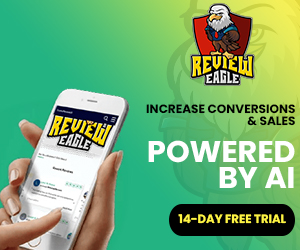Businesses are constantly seeking innovative ways to capture the attention and loyalty of their online audience. One strategy that has gained significant traction in recent years is website personalization. By tailoring the user experience to individual preferences and needs, companies can create a more engaging and impactful online journey for their visitors. But how does one effectively implement website personalization? This is where the power of AI comes into play. Artificial Intelligence (AI) has revolutionized various industries, and website personalization is no exception. Gone are the days of static, one-size-fits-all web experiences.
With the help of AI, companies now have the ability to analyze vast amounts of data, gaining valuable insights into their users’ behavior, preferences, and intent. Imagine a website that adapts and learns from each interaction, presenting personalized content, recommendations, and offers tailored specifically to each user. This level of customization not only enhances user satisfaction but also boosts conversion rates and customer loyalty.
AI algorithms have the ability to analyze user data in real-time, tracking their browsing patterns, purchase history, and even demographic information. By leveraging this data, AI can generate accurate predictions and make informed decisions on what content or offers will resonate most with each user. This proactive approach saves time for users who no longer need to sift through irrelevant content, ensuring they find what they are looking for quickly and conveniently.
One key aspect that sets AI-driven website personalization apart from traditional methods is its ability to continuously learn and adapt. As users interact with a personalized website, AI algorithms analyze their responses and adjust the content accordingly. This iterative process ensures that each user’s experience becomes increasingly tailored over time. When a user returns to the site, they are greeted with a familiar interface that understands their preferences, making them feel valued and understood.
In this blog post, we will explore the exciting world of website personalization and delve into the ways AI is unlocking its true potential. From the benefits of personalization to the AI algorithms driving this revolution, we will uncover the secrets behind creating a dynamic and engaging web experience that keeps users coming back for more. So, buckle up and get ready to discover how AI is transforming the way we approach website personalization.
The Benefits of Website Personalization
Website personalization offers a multitude of benefits for both businesses and users. By tailoring the online experience to individual preferences, companies can create a more engaging and impactful journey for their visitors. Let’s explore some of the key advantages of website personalization:
1. Enhanced User Experience: Personalized websites provide users with content that is relevant to their interests and needs. This creates a seamless and enjoyable browsing experience, as users can easily find what they are looking for without having to navigate through irrelevant information. By presenting personalized recommendations, offers, and content, businesses can increase user satisfaction and keep visitors engaged.
2. Increased Conversion Rates: When users are presented with personalized content that resonates with their preferences, they are more likely to convert into customers. By leveraging AI algorithms to analyze user data and make informed decisions on what content or offers will be most appealing, businesses can significantly boost their conversion rates.
3. Improved Customer Loyalty: Personalized websites make users feel valued and understood. When a website adapts to each user’s preferences and provides them with relevant recommendations or offers, it creates a sense of loyalty towards the brand. Users are more likely to return to a website that understands their needs and consistently delivers personalized experiences.
4. Higher Engagement: Personalized websites encourage users to spend more time exploring the content and offerings available. By presenting relevant recommendations or related articles based on user preferences, businesses can increase user engagement and keep visitors on their site for longer periods.
5. Better Targeting: Website personalization allows businesses to target specific customer segments more effectively. By analyzing user data in real-time, AI algorithms can identify patterns in behavior or demographics that enable businesses to tailor their marketing strategies and offerings to specific target audiences. This targeted approach ensures that businesses are reaching the right customers with the right message at the right time.
Overall, website personalization powered by AI offers numerous benefits for businesses looking to create a more personalized and engaging online experience. By understanding user preferences and delivering tailored content, businesses can enhance user satisfaction, increase conversion rates, foster customer loyalty, boost engagement, and improve targeting strategies.
How AI Analyzes User Data in Real-Time
AI plays a crucial role in analyzing user data in real-time to drive website personalization. By leveraging advanced algorithms, AI can process vast amounts of data and extract valuable insights into user behavior, preferences, and intent. Let’s take a closer look at how AI analyzes user data:
1. Data Collection: AI algorithms collect various types of data from users as they interact with a website. This includes browsing patterns, click-through rates, purchase history, demographic information, and more. The more data available, the better AI can understand each user’s unique characteristics and preferences.
2. Data Processing: Once the data is collected, AI algorithms process it using machine learning techniques. These algorithms analyze patterns within the data to identify correlations or trends that can be used to make predictions about user behavior or preferences.
3. Predictive Analytics: Using the processed data, AI algorithms generate accurate predictions about what content or offers will resonate most with each user. By understanding individual preferences and intent in real-time, businesses can deliver personalized recommendations or targeted advertisements that are highly relevant to each user’s needs.
4. Real-Time Adaptation: One of the key advantages of AI-driven website personalization is its ability to continuously learn and adapt based on user interactions. As users engage with a personalized website, AI algorithms analyze their responses and adjust the content accordingly. This iterative process ensures that each user’s experience becomes increasingly tailored over time.
5. Automated Decision-Making: AI algorithms can make informed decisions about what content or offers to present to each user without human intervention. By automating the decision-making process, businesses can save time and resources while ensuring that users are presented with the most relevant and engaging content.
AI’s ability to analyze user data in real-time is a game-changer for website personalization. By leveraging AI algorithms, businesses can gain valuable insights into user behavior, preferences, and intent, allowing them to deliver personalized experiences that drive engagement and conversion rates.
Leveraging AI to Make Informed Decisions
AI is revolutionizing the way businesses make decisions when it comes to website personalization. By leveraging AI technology, companies can make informed decisions based on data-driven insights. Here are some ways in which AI helps businesses make better decisions:
1. Data Analysis: AI algorithms have the ability to analyze vast amounts of data quickly and accurately. This allows businesses to gain valuable insights into user behavior, preferences, and intent without manual analysis.
2. Predictive Analytics: By analyzing historical data and patterns within it, AI algorithms can generate accurate predictions about future user behavior or preferences. This enables businesses to anticipate customer needs and tailor their offerings accordingly.
3. Personalized Recommendations: With the help of AI algorithms, businesses can provide personalized recommendations based on individual user preferences and browsing history. This increases the chances of users finding relevant content or products that they are interested in.
4. Real-Time Adaptation: AI algorithms can adapt and adjust website content in real-time based on user interactions. This ensures that users are always presented with the most relevant and engaging content, increasing their satisfaction and likelihood of conversion.
5. A/B Testing: AI algorithms can also be used to conduct A/B testing, where different versions of a webpage or content are shown to different users. By analyzing the performance of each version, businesses can make data-driven decisions about which version performs better and should be implemented.
By leveraging AI technology, businesses can make informed decisions that drive website personalization and ultimately improve user satisfaction, engagement, and conversion rates. AI’s ability to analyze data quickly and accurately provides businesses with valuable insights that help them deliver personalized experiences tailored to individual user preferences.
Traditional Approaches vs. AI-driven Personalization
When it comes to website personalization, traditional approaches often fall short compared to AI-driven personalization. Let’s compare the two:
1. Manual Segmentation vs. Real-Time Personalization: Traditional approaches rely on manual segmentation based on broad demographic or behavioral characteristics. This approach is time-consuming and often leads to generalized experiences for users. In contrast, AI-driven personalization analyzes user data in real-time, allowing for dynamic and personalized experiences tailored to individual preferences.
2. Limited Data Analysis vs. Advanced Analytics: Traditional approaches typically rely on limited data analysis capabilities, making it difficult to gain deep insights into user behavior or preferences. On the other hand, AI-driven personalization leverages advanced analytics techniques to process vast amounts of data quickly and accurately, providing businesses with valuable insights that drive effective decision-making.
3. Static Content vs. Dynamic Adaptation: Traditional approaches often involve static content that remains unchanged regardless of user interactions. In contrast, AI-driven personalization enables dynamic adaptation of website content based on real-time user interactions. This ensures that users are always presented with the most relevant and engaging content.
4. Manual Decision-Making vs. Automated Decisions: Traditional approaches require manual decision-making processes, which can be time-consuming and prone to human error. AI-driven personalization automates the decision-making process, allowing businesses to make informed decisions based on data-driven insights without human intervention.
5. Limited Scalability vs. Scalable Solutions: Traditional approaches often struggle to scale as the volume of data and complexity of personalization increase. AI-driven personalization offers scalable solutions that can handle large amounts of data and adapt to changing user preferences or behavior patterns.
AI-driven personalization outperforms traditional approaches in terms of real-time personalization, advanced analytics capabilities, dynamic adaptation, automated decision-making, and scalability. By leveraging AI technology, businesses can unlock the true potential of website personalization and deliver personalized experiences that drive engagement, conversion rates, and customer loyalty.
The AI Web Agency is dedicated to helping our clients grow their business. Growth is the DNA and foundation of our focus in everything we provide to our clients. The AI Web Agency offers marketing services that make our client’s phones ring, their websites fill with visitors, and keeps their existing clients engaged. We deliver this growth both online and offline, to local businesses and national brands. We leverage the power of AI to provide precision personalized content delivered via Email, Web, and Social Media to help businesses grow.









